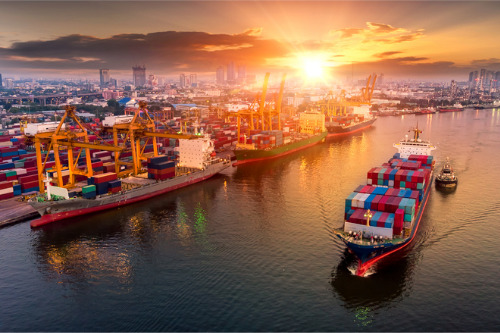

It is tough to simplify logistics and the supply chain, but there are ways to use comparison to achieve this goal.
“I try to explain it in the simplest possible way,” says Alex Rosas, executive vice president for Amwins Specialty Logistic Underwriters (ASLU).
“Go to an aisle in a supermarket and look at all the products. They didn’t just appear there. They went through a process of being built or manufactured, and then they went through a process of going to a warehouse, and then they went through a process of going to a distribution facility…Within all those parts there was transportation by ocean, air, trucks. There are a lot of things that move around the world and logistics companies are at the forefront of all of it.”
Despite the many ways we have for moving products around, though, Rosas says there aren’t a lot of places out there that specialize in covering the complex risk factors of the logistics industry.
Part of that, he thinks, is because logistics tens to get lumped in with ocean cargo, when the reality of the business – and the ever-changing landscape surrounding it – makes its insurance needs a lot more complicated than that.
“We’re trying to get logistics to come out of the shadow of ocean cargo and come into its own,” he said.
One of the challenges to achieving that is the lack of people with the specialized skills to handle logistics underwriting. Rosas estimates there are about a dozen logistics underwriters in the whole of the United States who specialize in logistics, and, for the most part, they’re employed by only three companies (including ASLU). This highlights the need for a new hybrid style of underwriter experienced both in inland and ocean marine – something that is paramount in helping the industry achieve a level of health and recognition.
The Fort Lauderdale, FL-based ASLU is doing its part to do that. First launched in 2018 to offer niche coverage solutions for freight forwarders and third-party logistics operators, earlier this year it announced its expansion into the Canadian market to serve Canada’s growing logistics industry and bring a new level of service and knowledge to the mix.
“Canada has very similar laws with regards to transportation and international law,” Rosas said. “It has a very similar system of trucking and logistics as the United States. So, it was kind of the clear next step.”
“The world is moving extremely fast, and any alteration changes the whole blockchain. It’s a daily adaptation; it’s not just one or two changes a year, it happens all the time. A small law might change everything. A court case precedent might change everything. Entire lines of business are being changed just because of the logistics industry’s changing needs.”
An example of that evolution he likes to point to is the impact that the pandemic has had on manufacturers and distributors around the world.
Some manufacturers set up to produce alcohol-based products had to shift to produce hand sanitizer in order to survive; same with textile companies that had to update their processes to start producing medical garments and masks. Then you have the trucking companies that were specialized to move a certain product that was no longer being shipped in large quantities, and those companies suffered losses – or went out of business – when they couldn’t adapt quickly enough.
“We saw daily how it happened,” he said. “We had specialty heavy machinery orders and third-party logistics operations that all of a sudden came back to us with two problems – not meeting their goals, or needing to move different types of commodities in order to survive. So, we did everything we could to help them out with their premiums and policies.”
Rosas is hoping that a spotlight on the importance of maintaining logistics insurance during these interesting times will lead to more people considering logistics underwriting as a career and help expand the knowledge base for this rapidly changing logistics environment.
“It’s a very interesting industry in that minor things can affect the whole thing,” he said. “That’s what we ask on a daily basis, ‘What has changed today? How can we adapt? How can we make the overall broker experience simpler? The answer is always the same, adaptation, knowledge and service.’”
ASLU recently expanded its logistics program to Canada and will now provide coverage to all provinces. To find out more, visit amwins.com/aslu for more information.
